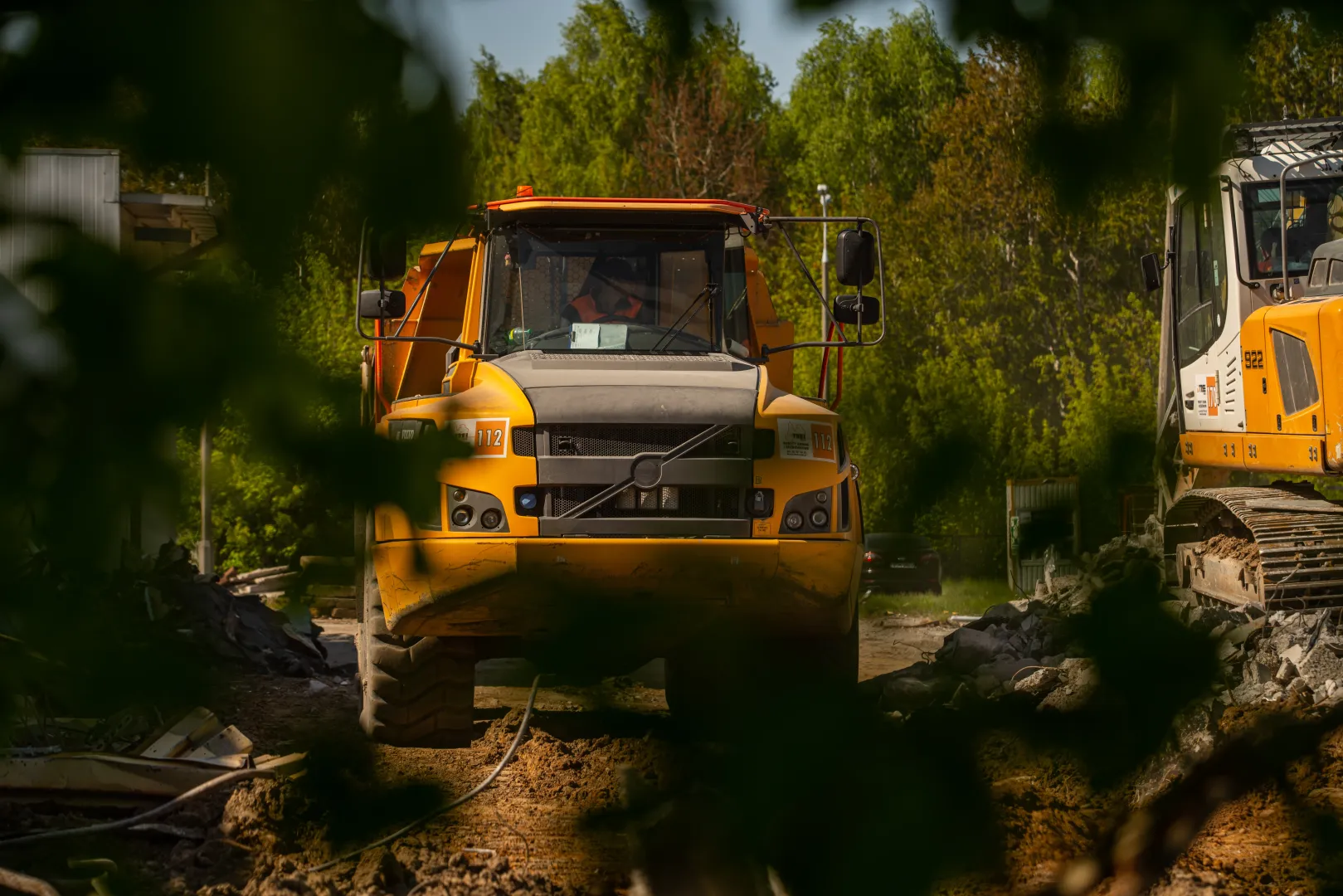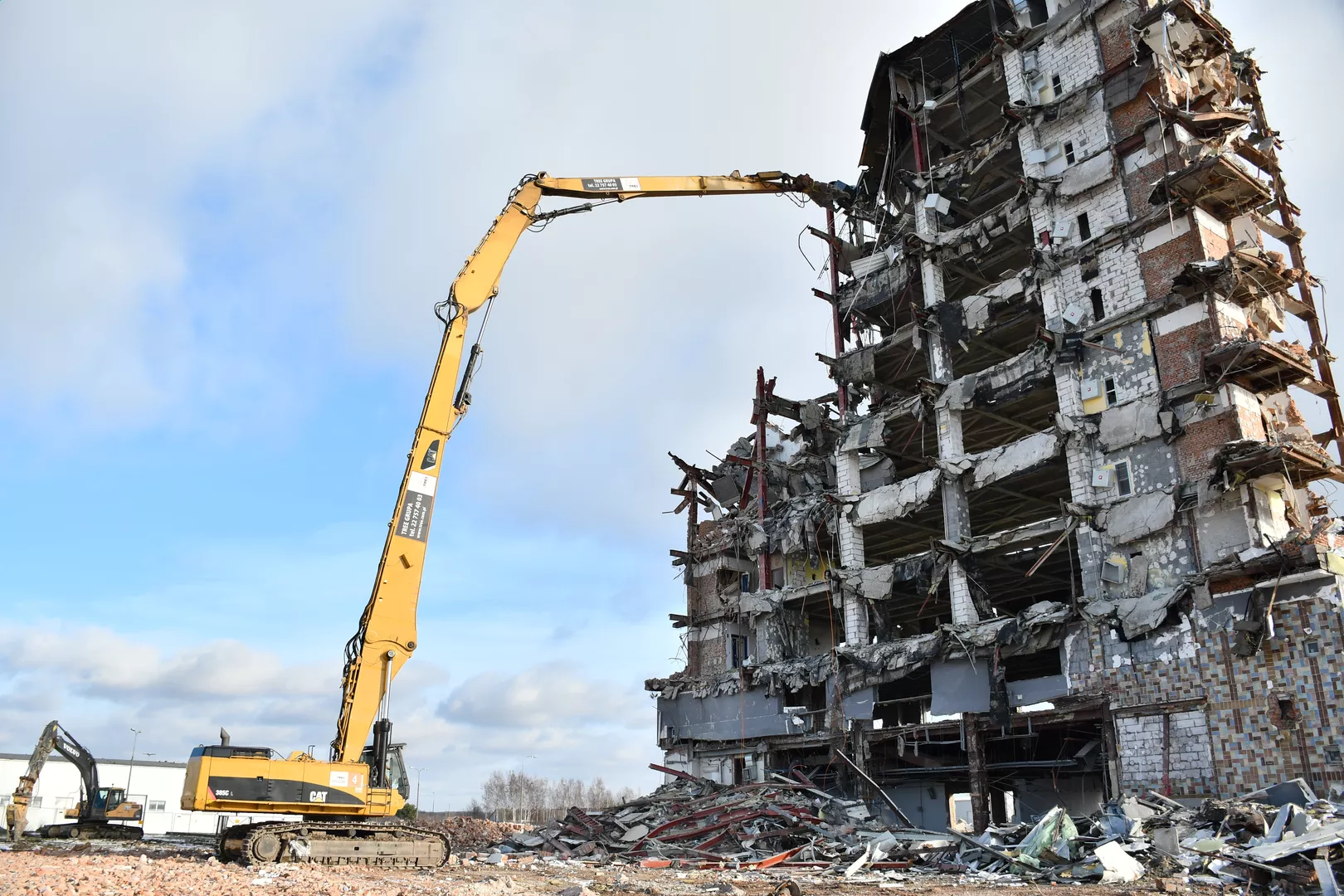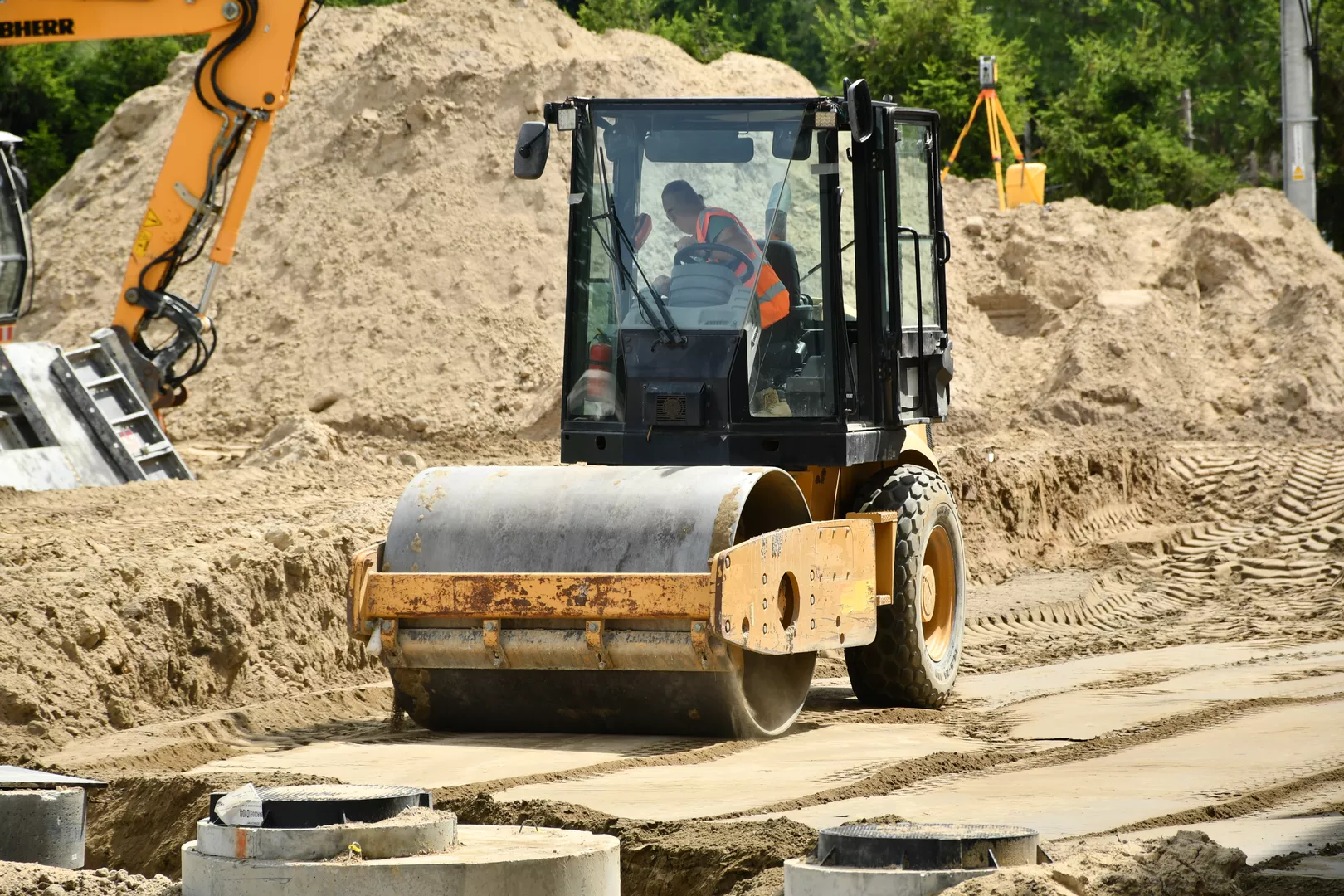
Legal Aspects of Demolition and Earthworks - Comprehensive Guide
A comprehensive guide to legal requirements related to demolition and earthworks. Learn what permits are necessary, how to prepare proper documentation, and how to avoid legal problems during project implementation. Explore current regulations, admin
Legal Aspects of Demolition and Earthworks - Comprehensive Guide
Introduction
The implementation of demolition and earthworks requires not only appropriate equipment and experience but also a thorough understanding of the legal regulations governing these processes. This guide serves as a comprehensive source of knowledge about legal requirements, necessary permits, and documentation required when conducting demolition and earthworks in Poland. Effective management of the legal aspects of a project allows you to avoid costly delays, administrative penalties, and problems with construction supervision authorities.
Legal foundations for demolition and dismantling works
- Key legal acts
- Construction Law Act of July 7, 1994 (with later amendments)
- Regulation of the Minister of Infrastructure on technical conditions to be met by buildings and their location
- Waste Act of December 14, 2012
- Environmental Protection Law
- Local spatial development plans
- Regulation on occupational health and safety during construction works
- Classification of objects in terms of legal requirements
- Objects requiring demolition permits
- Objects requiring demolition notification
- Objects not requiring permits or notification
- Historic and heritage-protected objects
Process of obtaining demolition permits
- When a demolition permit is required
- Buildings higher than 8 meters
- Objects entered in the register of monuments or located in an area entered in the register of monuments
- Objects whose demolition requires the use of explosives
- Buildings with a volume exceeding 1000 m³
- Objects indicated by the architectural-construction administration authority
- Documentation required to obtain a permit
- Application for a demolition permit
- Consent of the object's owner
- Demolition project developed by an authorized designer
- Description of the scope and method of conducting demolition works
- Health and safety plan (BIOZ)
- Agreements with network operators (in the case of connections)
- Decision on environmental conditions (if required)
- Technical expertise (in justified cases)
- Administrative procedure
- Submission of a complete application to the office
- Verification of documentation by the architectural-construction administration authority
- Completion of formal deficiencies (if necessary)
- Issuance of a demolition permit
- Validity period of the permit (usually 3 years)
- Possibilities of appeal against a negative decision
Notification of demolition works
- When notification is sufficient
- Buildings up to 8 meters high
- Buildings with a volume up to 1000 m³
- Construction objects that are not buildings whose demolition does not require a permit
- Connections and installation devices
- Documentation required for notification
- Demolition notification form
- Description of the scope and method of performing works
- Sketch of the object's location
- Consent of the object's owner
- Declaration of the right to dispose of the property
- Photographic documentation of the object
- Administrative procedure
- Submission of notification to the office
- 21-day period for objection from the office
- Lack of objection means the possibility of starting work
- Validity period of the notification (usually 3 years)
Permits and documentation for earthworks
- Legal qualification of earthworks
- Earthworks as an element of the construction process
- Earthworks not related to the construction process
- Reclamation and leveling works
- Legal requirements for different types of earthworks
- Excavations for foundations (as part of the building permit)
- Macro-leveling and earthworks changing the terrain shape
- Works in conservation protection zones
- Earthworks in naturally protected areas
- Drainage and land improvement works
- Necessary documentation
- Geological works project (in justified cases)
- Geotechnical opinion
- Land development project
- Excavation drainage project
- Environmental impact assessment (for larger investments)
- Waste management plan
Environmental requirements and waste management
- Regulations on waste management
- Classification of construction waste
- Obligations of the waste producer
- Waste record documentation
- Waste transfer cards
- Waste reporting
- Environmental permits
- Decision on environmental conditions (DEC)
- Water permits
- Decisions on waste production
- Permits for collecting and processing waste
- Requirements for protection against noise and emissions
- Permissible noise levels
- Restrictions on dust and emissions
- Hours for conducting disruptive works
- Monitoring of environmental impact
Specific legal requirements for special objects
- Historic objects
- Permission from the voivodeship conservator of monuments
- Conservation documentation
- Conservation supervision
- Special requirements for securing historic elements
- Objects containing asbestos
- Asbestos removal program
- Specialized permits for contractors
- Safety and health protection procedures
- Information obligations towards supervision authorities
- Special requirements for transport and disposal
- Industrial and post-industrial objects
- Assessment of land contamination
- Initial report for industrial areas
- Remediation plan (in case of contamination detection)
- Decision approving the remediation plan
- Environmental monitoring
Legal responsibility in the demolition process
- Investor's responsibility
- Selection of qualified contractors
- Ensuring appropriate supervision
- Obtaining required permits and decisions
- Compliance with conditions contained in administrative decisions
- Work manager's responsibility
- Conducting works in accordance with the project and regulations
- Ensuring safety at the construction site
- Maintaining construction documentation
- Reporting discrepancies between the project and the actual state
- Sanctions for violating regulations
- Administrative penalties (up to 500,000 PLN)
- Order to stop works
- Order to demolish completed elements
- Criminal liability (in case of serious violations)
- Civil law consequences (compensations)
Case study: Comprehensive demolition of a shopping center in an urban area
The project involved the demolition of a 20,000 m² shopping center in the strict city center. Legal complexity resulted from the location, proximity to residential buildings, and partial conservation protection.
Key legal challenges:
- Obtaining a demolition permit considering the neighborhood
- Agreements with the conservator of monuments
- Development of a detailed waste management plan
- Obtaining permits for occupying the road lane
- Agreements with infrastructure network operators
Applied solutions:
- Two-stage process of obtaining permits
- Involvement of specialists in monument protection
- Cooperation with local authorities and community
- Development of a detailed legal schedule in advance
Results:
- Obtaining all permits on time
- No delays resulting from legal issues
- Exemplary documentation and waste records
- Zero administrative penalties and sanctions
Best legal practices in the investment process
- Early planning of legal aspects
- Legal analysis at the investment planning stage
- Identification of key requirements and potential obstacles
- Estimation of time needed to obtain permits
- Inclusion of legal aspects in the project schedule
- Comprehensive approach to documentation
- Hiring experienced designers
- Careful preparation of applications and attachments
- Verification of documentation completeness before submission
- Systematic archiving of decisions and permits
- Cooperation with administration authorities
- Consultations before submitting formal applications
- Open communication with officials
- Proactive approach to clarifying doubts
- Involvement of specialists in meetings with administration authorities
- Monitoring legal changes
- Tracking amendments to regulations
- Participation in industry training and conferences
- Cooperation with law firms specializing in construction law
- Updating knowledge and internal procedures
Summary
Legal aspects are a key element of every demolition and earthworks project. A well-planned legal process allows you to avoid delays, additional costs, and potential conflicts with administration authorities. Conscious management of legal requirements, appropriate preparation of documentation, and systematic control of compliance with regulations are the foundation for the success of even the most complex demolition projects.
Tree Group offers comprehensive support in the field of legal aspects of demolitions and earthworks, providing professional advice and assistance in obtaining necessary permits. Our experience includes both standard projects and complex cases requiring a non-standard legal approach.
Tags
Share this guide
About the author
Anna Wiśniewska
Legal Counsel, Construction Law Specialist
Category
Legal Aspects
Reading time
18 minutes
Publication date
March 21, 2025
Similar guides

Permission for demolition in Warsaw - complete guide 2025
Complete guide to obtaining demolition permits in Warsaw. Learn what documents are needed, permit costs, and how to avoi...

Documents required for building demolition - checklist 2025
Complete checklist of all documents required for building demolition. Verify you have all necessary permits, projects an...